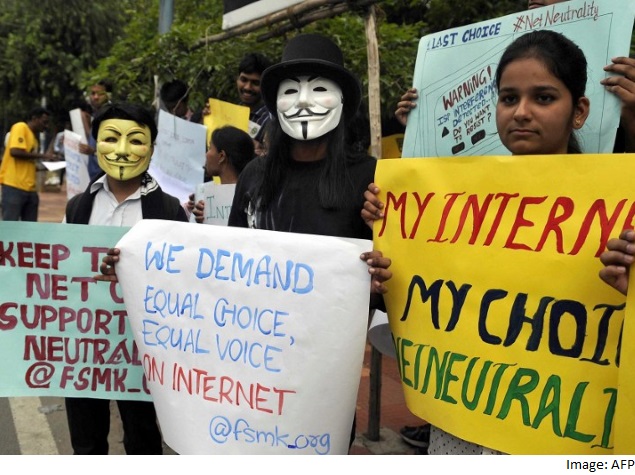Government to Ensure Non-Discriminatory Access to Internet: Telecom Minister
Advertisement

Government Tuesday promised to ensure "non-discriminatory access to Internet" to all citizens as members cutting across party lines in Rajya Sabha slammed Trai for its consultation paper that sparked off a debate over net-neutrality.
"Government stands for ensuring non-discriminatory access to Internet for all citizens of the country...It is committed to the fundamental principles and concept of net neutrality, keeping the Internet accessible and available to all without discrimination," IT and Telecom Minister Ravi Shankar Prasad said while replying to a Calling Attention Motion.
"Connectivity to Internet must go in an unhindered manner...I assure the House that the key principles of net neutrality will be followed while following concerns with a national outlook," he said.
Unlike the government-opposition clash during a debate on the issue in Lok Sabha when Congress Vice President Rahul Gandhi had raised it a fortnight back, the Upper House saw an unanimity on the issue.
(Also see: Net Neutrality in India: Rahul Gandhi Wants Parliament Debate)
Members from all parties including BJP and Shiv Sena voiced their concerns on the matter, noting which Prasad said, "net neutrality is party neutral, ideology neutral... Today the entire House has spoken in one voice... substance without flamboyance is the hallmark of this House."
Advertisement
The debate saw members comparing net neutrality to supply of electricity and water in a house on which separate tariff cannot be put based on the use of electronic gadgets or the location of water taps.
Reiterating the government's commitment to the core principles of net neutrality, the IT minister said, "we must recognise that there are nuances to the issue which needs deliberation to make it more meaningful."
Advertisement
Citing debates on litigations on the issue of net neutrality across the world including the USA and the European Union, he said the debate in India has also gathered over the suo moto consultation paper issued by the Trai which asked for responses to a number of questions concerning the regulation of Over the Top (OTT) players.
"If the issue did not have nuances to it, why then experts and regulators all over the world be breaking their heads over it.
Advertisement
"It is, therefore imperative that we not only preserve but also foster non-discriminatory Internet ecoystem, wherein telecom service providers, content and application providers, industries, entrepreneurs and above all the citizens of the country have a stake," Prasad said defining net neutrality in the works of Professor Tim Wu, who coined this word.
He said the government agrees with the view point that blocking and deliberate slowing down/speeding up of lawful content on Internet should not be allowed and customers should have unrestricted access to all lawful content on Internet.
"There would be instances, such as traffic management, national security, integrity of network, investment in infrastructure etc, where the implications of net neutrlity would need detailed expert examination. This is what governments and regulators all over the world are grappling with," he said, adding that "very few countries have specific legislation for enforcement of net neutrality provisions."
Trinamool Congress leader O'Brien asked whether the government was bringing a "license raj" on Internet as he alleged that the Trai consultation paper sounded like one by some telecom major and "not in favour or users" but telecom companies.
For the latest tech news and reviews, follow Gadgets 360 on X, Facebook, WhatsApp, Threads and Google News. For the latest videos on gadgets and tech, subscribe to our YouTube channel. If you want to know everything about top influencers, follow our in-house Who'sThat360 on Instagram and YouTube.
Advertisement
